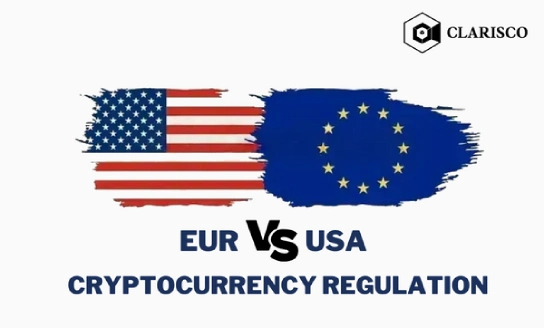
























































































































































































Clarisco requests your action to continue
The above mentioned products are used only for clear understanding. We don't have control of the brand and are not doing direct & indirect partnerships with them. We are also not doing promoting activities for them.
Bitcoin has not only established the pattern for cryptocurrencies, but it has also become the ultimate cryptocurrency standard. Despite its volatility, Bitcoin has been dubbed the best-performing asset class of the decade. Its returns outperformed all other assets by a factor of ten, with gains of more than 800%.
Many cryptocurrency aficionados believe that these investments will result in the formation of a new generation of digital currency millionaires (or billionaires). The blockchain technology that underpins Bitcoin and other cryptocurrencies have been highlighted as a game changer in a variety of industries, ranging from shipping to healthcare to entertainment. By removing intermediaries, distributed ledgers provide previously inconceivable types of economic potential. Investing in Bitcoin is a chance for people who believe in the potential of cryptocurrencies and Blockchain technology. But how can we ensure that these technologies are not abused? This is where crypto rules come into play.
As cryptocurrency usage grows, so are cryptocurrency regulations throughout the world. The crypto environment is continuously changing, and keeping up with the legislation in several worldwide jurisdictions is difficult. Many countries have implemented crypto regulations and the EU was ahead of all these regulations. Moreover, it has to note that the speedy regulation of the EU is worrying US regulators. Let’s take deeper dive into the EU regulation and their importance.
The European Union (EU) has made a significant step forward in cryptocurrency regulation, with the European Council passing the complete Markets in Crypto-Assets (MiCA) law on October 5. Based on the Vote sequence, the measure has been awaiting approval by the European Parliament. Crypto businesses will have up to 18 months to prepare for the reforms, which will go into force in 2024.
Patrick Hansen, a crypto venture advisor and specialist on European politics, predicted the timeframe for two significant EU crypto laws. Hansen says that Markets in Crypto-assets (MiCA) and Transfer of Funds Regulation (TFR), two important crypto measures, will be passed between December 2022 and January 2023. Hansen demonstrates that the scope and speed of these rules alarm the United States and may drive them to respond more quickly.
The MiCA intends to protect crypto businesses’ investors and consumers. It also establishes obligations for issuers if they lose their user’s crypto assets.
MiCA also regulated stablecoins, requiring issuers to have adequate reserves and fulfill liquidity criteria during withdrawal. The TFR, on the other hand, develops money laundering legislation and addresses money-laundering concerns in crypto.
Hansen explains that the European Union is actively working on additional crypto initiatives with significant ramifications. More anti-money laundering legislation, a DeFi report, an NFT report, a DeFi oversight pilot, and Digital Euro Legislation are among them.
The crypto regulation was framed based on the voting process and the result of the EU parliament voting process on Oct 5 against the de-facto PoW ban: 33against and 25 in favor.
Just before the weekend, a motion for a proof-of-work ban in Europe resurfaced in the EU plan for crypto-asset legislation (MiCA). Since at least November of last year, lawmakers and environmental groups have been pressing for crypto mining regulation, citing what they see as energy-intensive crypto activities resulting from PoW.
The plan would have prohibited all service providers, crypto, and fintech firms from offering Bitcoin, Ethereum (as of today), and several other crypto-assets. This sparked a heated reaction from the cryptocurrency community, particularly Ledger's stance on financial freedom.
A new amendment has been enacted, which states:
Mining is unlikely to be addressed by this MiCA rule.
Mining will be included in the EU's sustainable finance taxonomy and regulated there by 2025. If POW is categorized as unsustainable under the taxonomy (which is extremely likely), mining firms will have a considerably more difficult time raising funds from European investors, enterprises, and governments. However, crypto companies such as exchanges, custodians, and so on that provide services on top of POW-based currencies should remain unaffected.
Overall, a really great development for Europe's crypto and web3 ecosystems!
A detailed explanation of MiCA
MiCA separates crypto-assets into three categories, according to the most recent public version of the proposal, posted in September 2020:
Asset-linked tokens (from Libra to DAI)
E-currency tokens (from Paypal to fiat-backed stablecoins)
Other cryptocurrencies.
The proposal includes safeguards for asset-referenced tokens such as DAI, as well as safeguards for customer protection (ranging from insider trading to private early token sales to investors and others prior to public listing), as well as capital requirements for service providers, custodians, and exchanges.
Formal talks on the proposed framework will now begin between the European Commission, Council, and Parliament.
The perks of new EU crypto-regulation
The EU is developing new laws termed Markets in Crypto-Assets in order to increase the potential of crypto-assets while reducing possible dangers. MEPs evaluated and updated the European Commission's plan, and Parliament and the Council achieved a preliminary agreement in June 2022. It now seeks final approval from both the Parliament and the EU member states.
To stimulate the development and use of innovative technologies, the new regulations aim to offer legal clarity, foster innovation, protect consumers and investors, and maintain financial stability.
The laws would safeguard financial stability by controlling public offerings of crypto-assets. Transparency, disclosure, authorization, and transaction monitoring are all covered under the regulations. MEPs want the European Securities and Markets Authority and the European Banking Authority to oversee the issuance of certain tokens. Businesses working with crypto-assets will need to properly advise customers on the risks, costs, and fees involved.
In March 2022, Parliament also passed legislation governing the use of distributed ledger technology, such as blockchain, for the trading of crypto-assets. Such technologies allow for the recording of contacts as well as the transfer of crypto assets. The purpose of this Act is to foster the development of crypto-asset trading solutions while maintaining a high level of financial stability, transparency, and market integrity.
Reducing the carbon impact of cryptocurrency:
MEPs have asked the Commission to create new guidelines to include any crypto-asset mining operations that contribute significantly to climate change in the categorization system for sustainable activities in order to lower the high carbon footprint of cryptocurrencies.
Preventing the use of cryptocurrency for illicit purposes:
In April 2022, the Parliament voted to begin discussions with EU nations on laws allowing the tracing and identification of crypto-asset transfers in order to prevent their use in money laundering, terrorism funding, and other offenses.
Managing tax evasion and avoidance:
In October 2022, the European Parliament requested that EU countries better coordinate on taxing crypto assets, stating that they must be taxed fairly, transparently, and effectively, but that authorities should consider a simplified tax treatment for occasional or small traders and small transactions. Blockchain, according to members, might help with effective tax collection.
The extent and speed with which the EU is contemplating crypto rules concern the US. Hansen says that, while the exact date is yet unknown, the regulations can be voted on by January of the following year. He also mentions that voting is now only a formality because all of the rules have been agreed upon. TFR, being a lesser rule, may go into force much sooner.
Crypto regulation is also being pushed by US legislators. Bipartisan and bicameral support exists in the US for a regulatory crypto framework. There is still no schedule for any meaningful action, though. Caroline D Pham, the commissioner of the Commodity Futures Trading Commission, stated that the United States should seek to be rule creators rather than rule takers.
This article describes the importance of crypto regulation. Crypto regulation has been implemented in many countries and the rest of the countries are planning to implement crypto regulation in their country. This regulation implementation shows the necessity of cryptocurrency and blockchain. Entrepreneurs, all over the world, are interested in developing their own companies related to crypto or blockchain. Similarly, 9 out of 10 entrepreneurs are struggling to create their crypto-related solutions. To solve this issue, there are many developers and crypto-related vendors to resolve their problems.
No matter how experienced or professional a trader is, developing cryptocurrency- related solutions that fully align with any given country's cryptocurrency regulations requirements is a complex process that necessitates a thorough understanding of cryptocurrency as well as the legal conditions surrounding it. This is where we come in. Clarisco, a highly regarded crypto exchange development firm, provides end-to-end crypto-based solutions and services. Get an all-inclusive package that includes a crypto exchange license, which will broaden the chances for your crypto trading platform. Discover the enormous world of cryptos now with our ground-breaking crypto solutions.
Our trustworthy and happy Clients

200+

served Clients with a happy smile
Awards & Recognition
We are extremely pleased that reputable publications around the world recognised our superior work.




We'd Love To Hear From You!
Know your requirement, our technical expert will schedule a call and discuss your idea in detail. All information will be kept confidential.
Skip the queue and book a call with our Founder

Founder, Clarisco Solutions Private Limited
With 12+ years of experience leading ventures in various industries, we guide businesses through digital transformation. We deliver Blockchain

Plot No. 29, 30, Iswarya Nagar,
Madakkulam, Tamil Nadu 625003, India
Business@clarisco.com +91 9442430551Monday-Saturday: 10am - 7pm
Sunday: Closed
